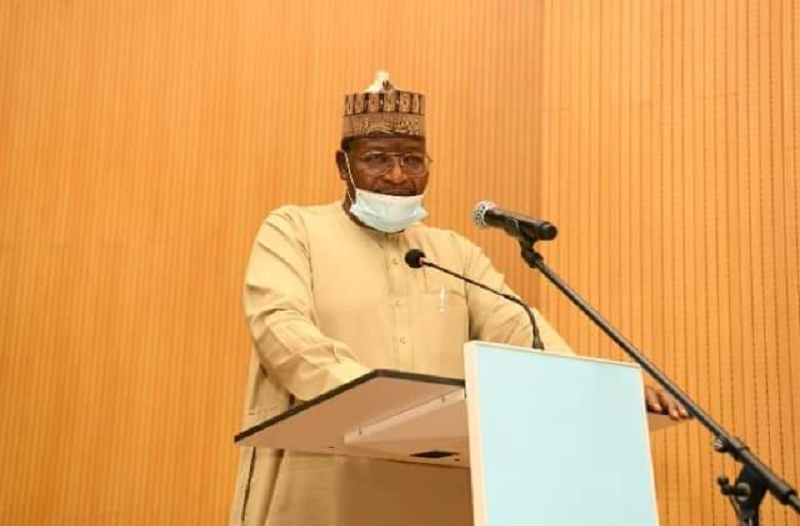Executive Vice Chairman of the Nigerian Communications Commission (NCC), Prof. Umar Garba Danbatta has said that the driving force behind his Strategic Vision Plan (8-point agenda) was to prepare the telecom industry for the uncertainties and challenges that lay ahead, considering the disruptions caused by evolving technologies.
Danbatta, who stated this on Tuesday in a keynote address he presented at the 2020 Virtual Nigeria Innovation Summit, said this is to ensure that the sector continues to play its veritable role as the enabler of the nation’s economic growth.
Represented by the Commission’s Director, Public Affairs, Dr Ikechukwu Adinde, Danbatta said the Commission, in continuing with its long-standing tradition of being a proactive regulatory approach, introduced policies and initiatives aimed at promoting the provision of efficient, available, affordable and easily accessible communications services throughout Nigeria.
“A proactive step taken by the Commission was the partnership with necessary stakeholders across the three tiers of government to collectively address challenges such as vandalism, multiple taxation & regulation, high cost of Right of Way (RoW), among others, which have been impeding speedy infrastructure deployment across the country,” he said.
The EVC noted that for innovation to thrive as the anchor for accelerating economic growth post-COVID-19, a robust broadband infrastructure upon which ICT innovations will ride is a necessity and an urgent one at that.
“During my first term in office, we placed emphasis on broadband to drive innovation, and hope to take broadband penetration to 70% by 2025 in line with the new target in the Nigerian National Broadband Plan (NBBP), 2020-2025.
“Through effective regulatory efforts, the NCC has been able to deepen connectivity in the country,” he stated.
Danbatta pointed out that under his stewardship at the NCC, the Commission realized that infrastructure gaps existed around the country, impairing networks performance, and leading to poor quality of service.
“With the steady increase in telecom subscribers, the Commission decided that a robust telecom/ICT infrastructure was needed to meet up with growing demands for improved Quality of Service.
“It became imperative for us at the Commission to introduce drastic measures at ensuring Nigerians receive value for money.
“We intensified our focus on the established key performance indicators (KPIs) for quality of service by instituting a regime of rigorous and continuous monitoring of the networks to ensure that they operate in tandem with set parameters,” Danbatta said.
He said that the NCC is driven by the vision to build a telecommunications market defined by universal access to affordable and equitable service, explaining why on the resumption of office as EVC of the NCC in August 2015, he launched the Strategic Vision Plan focusing primarily on facilitating broadband penetration, improving Quality of Service, and Optimising usage and benefits of Spectrum.
The Strategic Vision Plan also focuses on promoting ICT innovation and investment opportunities, facilitating strategic collaboration and partnerships, protecting and empowering consumers, promoting fair competition and inclusive growth as well as ensuring regulatory excellence and operational efficiency.

